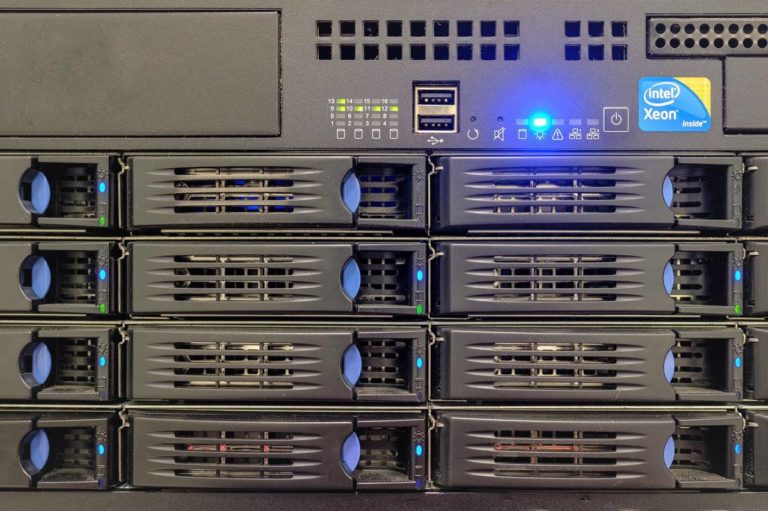For those new to RAID (Redundant Array of Inexpensive Disks), it is a hard drive setup that stores data on multiple hard drives simultaneously.

There are different types of RAID with very different levels of data redundancy managed. Raid 1 and Raid 5 are the best known. Each Raid system has its advantages and disadvantages.
This allows for some fault tolerance since data is copied multiple times, or can improve performance (reading and/or writing) depending on the type of Raid setup chosen. Like any hardware, even a raid 5 in a server or NAS can fail at different levels (hardware or software).
The problem is that a Raid installation often contains important data. This is not the kind of computer installation that you set up for fun. You will often have to go through a specialized laboratory if you want to recover the data on this type of installation.
What to do if your Raid installation fails?
Try to identify the fault
Do not take any RAID failure lightly. Some configurations are so complex that mishandling could seriously aggravate the situation of losing your data.
Most manufacturers, such as Dell, have web pages that can help you understand and troubleshoot hard drive and RAID issues. If you don’t have the skills in-house, don’t hesitate to use a specialized company.
If the failure appears to be caused by a hard drive
Choosing the Right Replacement Disc
If it is a faulty hard drive, try replacing it with a drive of the same model, ideally. Check via the “Part Number” on the manufacturer’s label. If you do not have an identical model, opt for a drive that is at least the size of the faulty drive.
Please note that two disk models sold with the same amount of storage space (1,2,4,6,8 TB) do not necessarily have the same usable size once installed and formatted. In other words, a 2TB disk from brand A could offer less space than a 2TB disk from brand B.
Hot or cold disk replacement?
Some Raid installations allow you to hot-swap a hard drive (=install while powered on and running) but this is not systematic. If you are unsure about this feature, it is best to turn off your system before replacing the hard drive.
When you restart, if the hard drive contains at least as much available space as the dead disk, it will be possible to start rebuilding your RAID. There is also a risk at this stage because the rebuild will take several hours. If another technical problem were to occur during the rebuild, this would not improve the situation.
Can you try to recover the data yourself?
Given the complexity of a Raid installation, trying to “tweak” your installation or any Raid recovery software to recover your data is more than risky, even dangerous for the sustainability of your data.
The solution of going through laboratories specialized in data recovery is often the best choice.
How much does it cost to recover data from a Raid system?
Unlike “simple” data recovery on a traditionally installed hard drive, the methodology and difficulty are much higher on a RAID-mounted disk cluster.
It is difficult to give a price for recovering data stored in Raid because the difficulty for the service provider will vary depending on the type of Raid, the number of disks and the type of failure. Expect to pay several thousand euros.
How to choose the right service provider to restore your files?
In France, there are about ten reputable companies in this field. Not all of them are specialized, equipped, or trained for Raid restoration. This is the first point that will perhaps allow you to sort through them. There are also customer reviews but you still need to be able to identify reviews from customers who have suffered a breakdown on a Raid system because it is quite specific.
Then there is the transparency on prices, which is not always the case. Also, note that these labs offer to send your discs for analysis and cost assessment. Some of them even refuse discs that have already passed through the hands of another lab.
Inquire before sending the procedure and its cost to recover your disks if it does not suit you. Avoid answers by phone and ask for an email to keep a written record to prevent any dispute.
Finally, these specialized companies sometimes only have one sales center in France where they receive the hard drives which are then re-shipped to another country: where the laboratory is. This is important because some people do not like knowing that their data is leaving the country (not to mention the additional risks associated with transport).


















